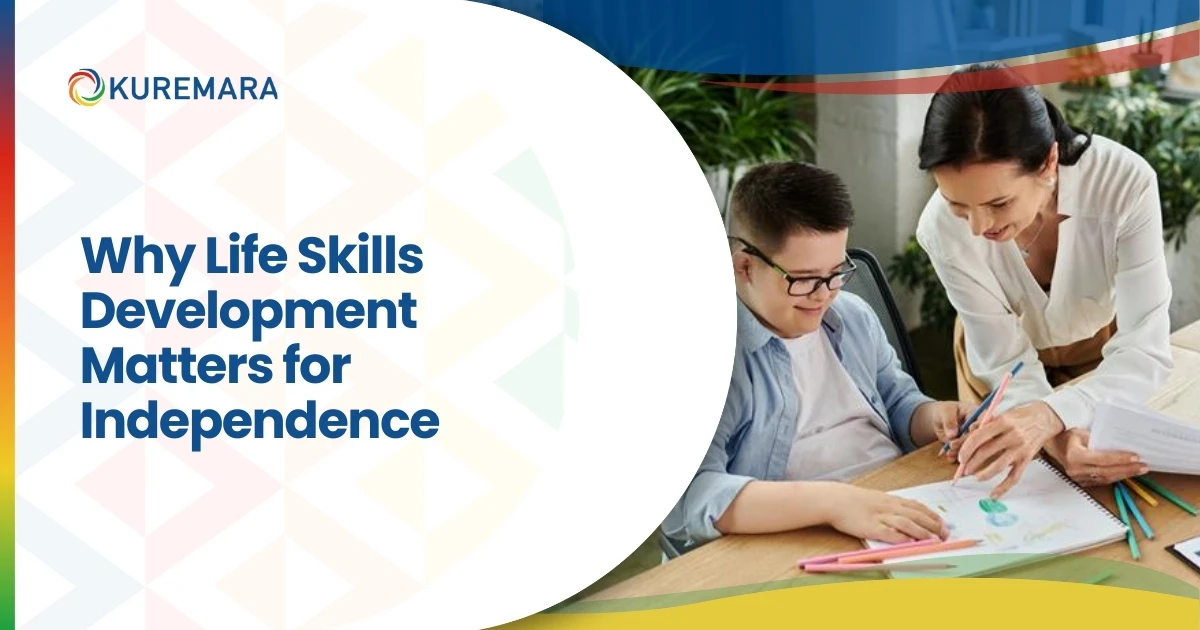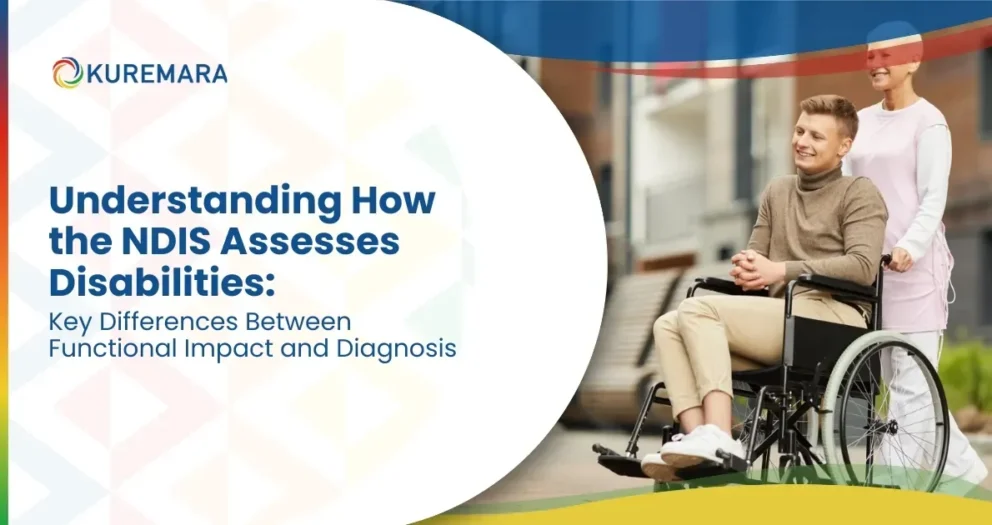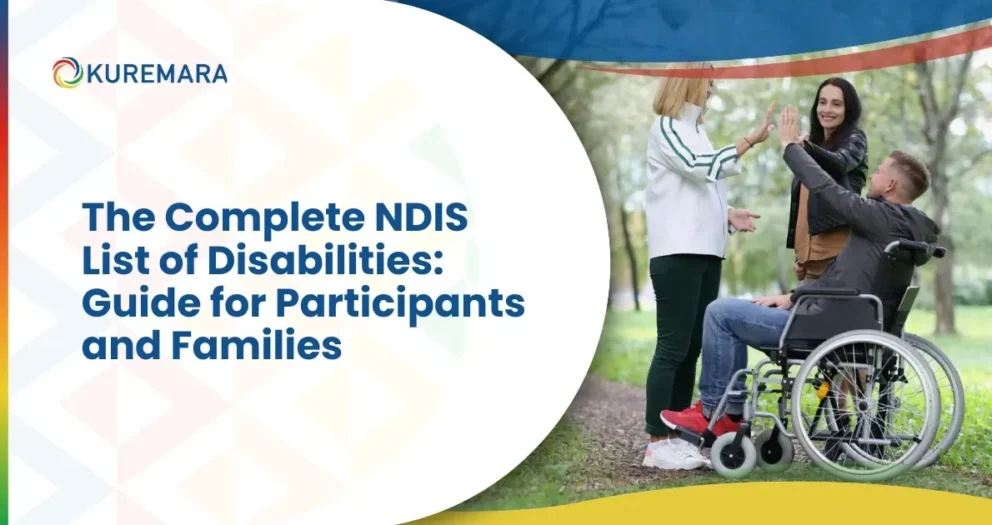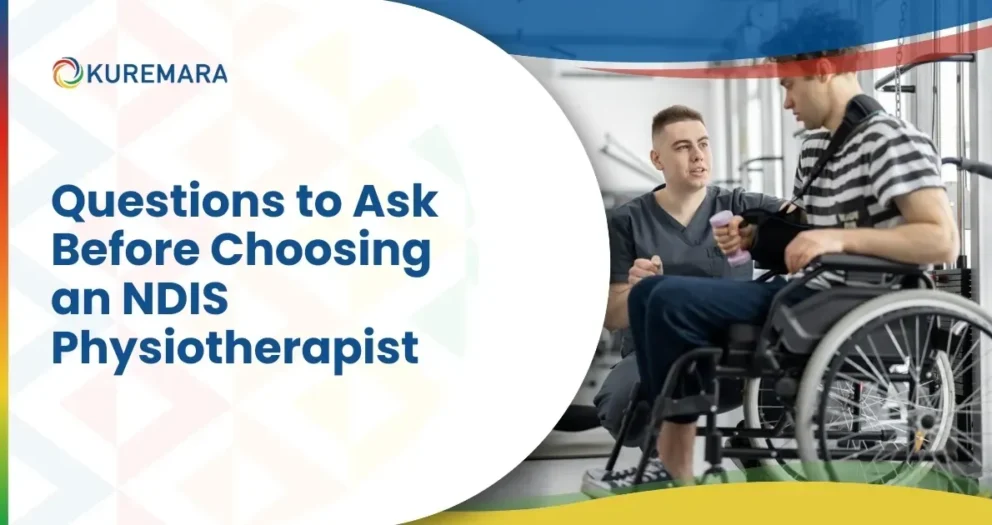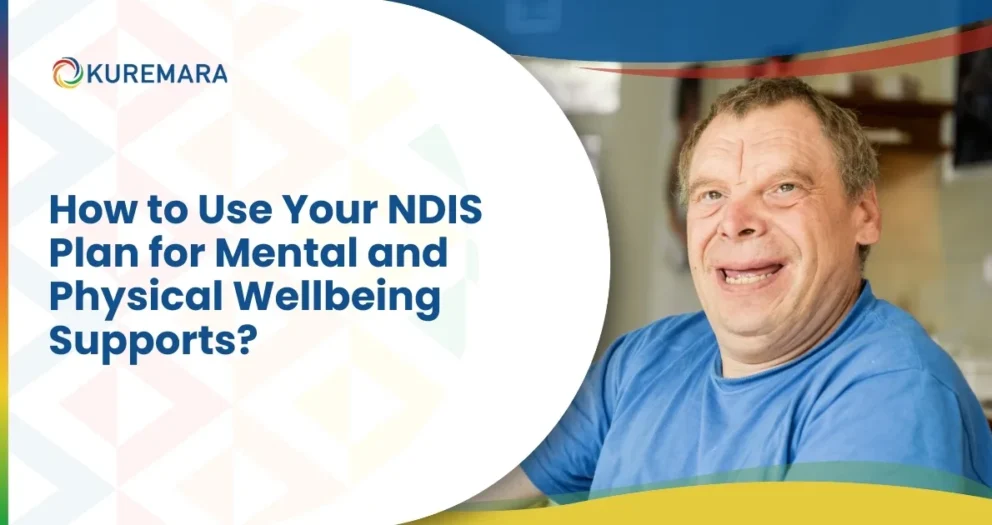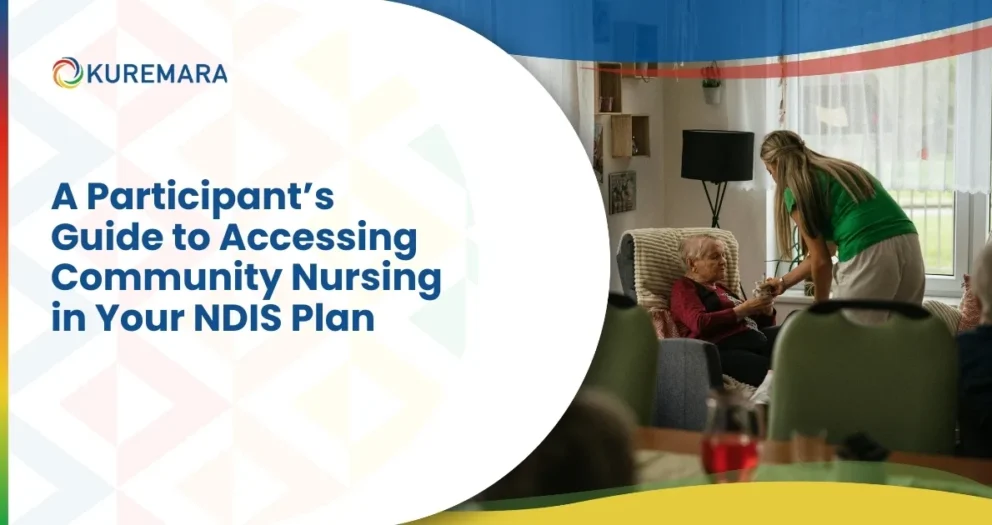Independence is more than just the ability to complete daily tasks; it’s about confidence, dignity, and the freedom to live life on your own terms. For many people living with disabilities, developing everyday skills is a powerful way to take control of their routines, build resilience, and connect meaningfully with their communities.
Within the National Disability Insurance Scheme (NDIS), life skills development is recognised as a crucial area of support. These supports empower individuals to learn, practise, and master the skills they need to live more independently and confidently. At Kuremara, we believe that every person deserves the opportunity to grow, thrive, and live a life filled with choice and control. That’s why we place life skills training at the heart of our disability support programs.
What Is Life Skills Development?
Life skills development refers to the training and guidance that helps people with disabilities build confidence and independence in their daily lives. It goes beyond the basics of personal care; it includes skills such as cooking, cleaning, budgeting, socialising, and even navigating public transport.
Under the NDIS development life skills category, participants can access supports designed to meet their unique goals. These programs can be tailored for one-on-one sessions or delivered in group settings to encourage social interaction and peer learning.
When delivered thoughtfully, NDIS life skills programs help participants not only achieve independence in practical areas but also strengthen their emotional well-being, decision-making, and sense of belonging.
Why Life Skills Development Matters for People with Disabilities
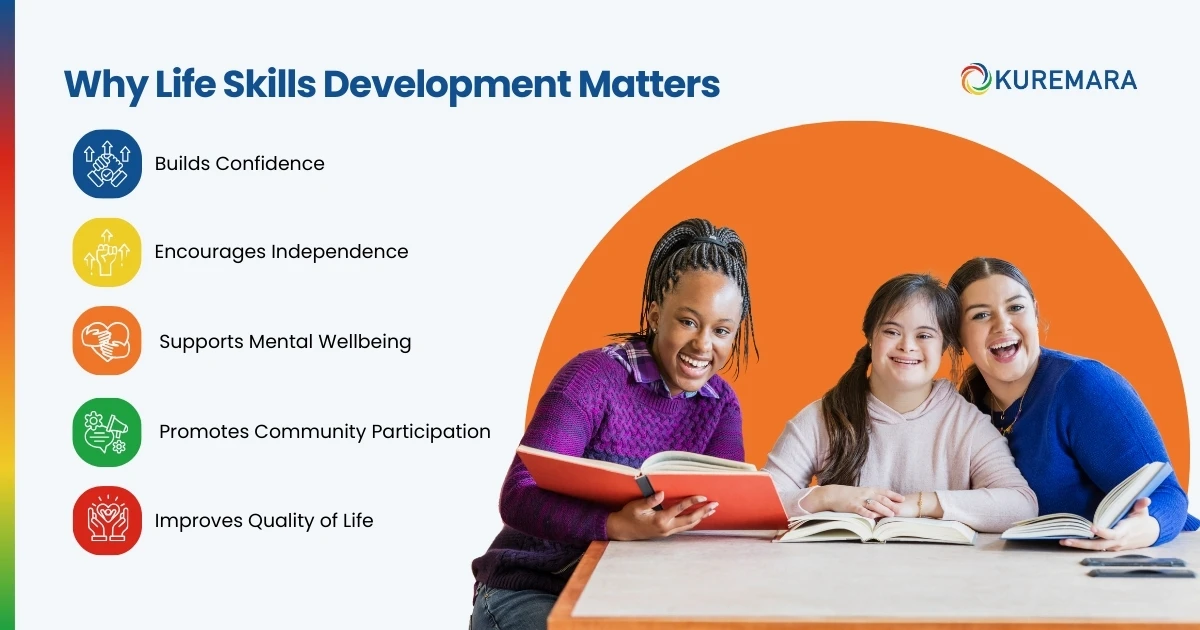
The importance of life skills development cannot be overstated. Here are some of the ways it impacts independence and quality of life:
1. Builds Confidence
Every new skill learned, whether it’s cooking a simple meal or handling money at the shops, boosts confidence and self-belief.
2. Encourages Independence
Life skills reduce reliance on carers or family members, giving participants greater control over their daily routines.
3. Supports Mental Wellbeing
Accomplishing tasks independently has been shown to reduce stress and anxiety, while building resilience and self-worth.
4. Promotes Community Participation
Skills such as using public transport or engaging in conversations enable participants to participate more fully in community life.
5. Improves Quality of Life
Independence leads to greater choice and control, ensuring participants feel empowered to live life their way.
Key Areas of NDIS Life Skills Development
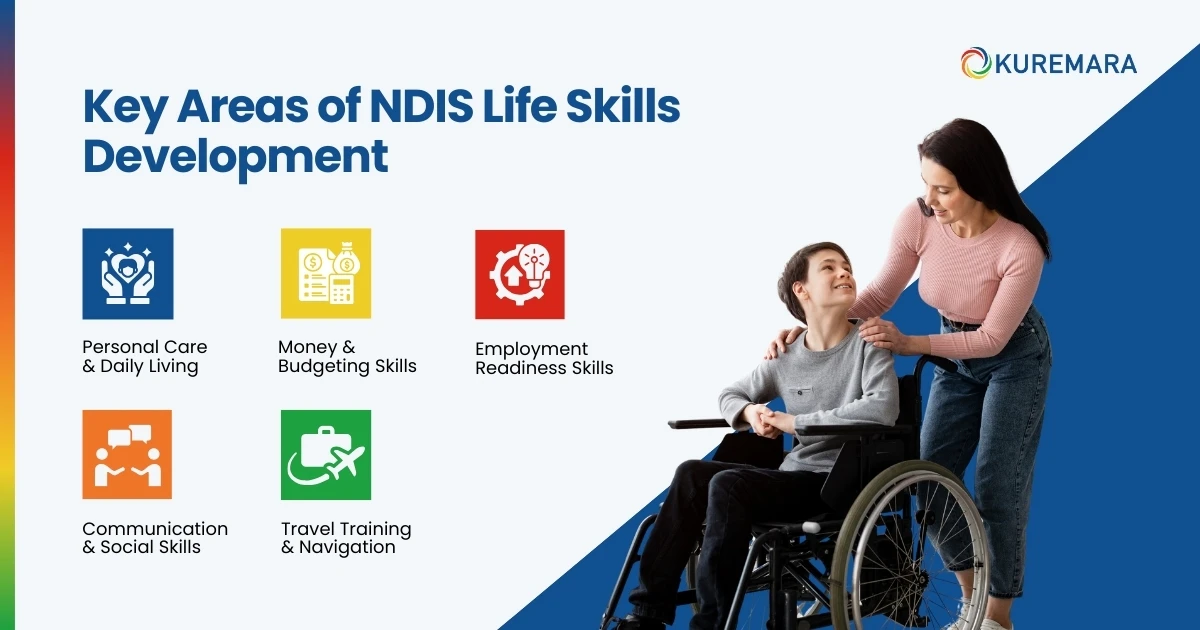
a. Personal Care & Daily Living
From hygiene routines to cooking and cleaning, daily living skills provide the foundation for independence. Participants learn to manage household chores, prepare meals, and look after themselves in ways that foster health and wellbeing.
Related service: Supported Independent Living (SIL) – where participants can practise these skills in a supportive home environment.
b. Money & Budgeting Skills
Financial independence is empowering. Through disability life skills programs, participants learn how to:
-
-
- Create and stick to a budget.
-
-
-
- Understand the value of money.
-
-
-
- Handle banking and savings.
-
These skills are vital for making informed choices, avoiding financial stress, and planning for the future.
c. Communication & Social Skills
Strong communication skills open the door to friendships, employment, and community inclusion. Life skills training often includes:
-
-
- Building conversational skills.
-
-
-
- Understanding social cues.
-
-
-
- Using technology for safe and effective communication.
-
These supports help reduce isolation and foster meaningful relationships.
Travel Training & Navigation
Mobility is key to independence. Travel training supports participants to:
- Learn road safety.
- Navigate public transport confidently.
- Plan routes and manage timetables.
This not only increases confidence but also reduces reliance on others for transport.
Related service: NDIS Transport Support – designed to make travel safe, reliable, and empowering.
Employment Readiness Skills
For participants looking to enter the workforce, life skills development can bridge the gap between education and employment. Key areas include:
- Time management.
- Workplace etiquette.
- Teamwork and problem-solving.
These skills provide the foundation for meaningful work opportunities and financial independence.
The Link Between Life Skills Development and Mental Well-being
Mastering everyday skills has a direct impact on mental health. Learning to cook a meal or travel independently creates a sense of achievement that boosts self-esteem and reduces anxiety. Participants often feel more capable and empowered when they know they can manage their daily routines.
Research also shows that life skills development is closely linked to emotional balance. Participants who engage in skill-building activities are more likely to experience improved self-worth and social inclusion.
At Kuremara, we’ve seen firsthand how participants benefit when their disability supports include structured opportunities to learn and practise new skills.
How NDIS Supports Life Skills Development
The NDIS development life skills category provides funding for supports that build participants’ independence. Depending on individual goals, funding may cover:
- One-on-one sessions with a support worker.
- Group-based learning activities.
- Community-based skill practice.
This funding ensures that participants can learn at their own pace, in a way that respects their unique needs and aspirations. It’s not a one-size-fits-all program; it’s designed to be tailored and flexible.
How Kuremara Supports Participants in Life Skills Development
As a registered NDIS provider, Kuremara is committed to helping participants build the skills that matter most to them. Here’s how we make a difference:
- Tailored Programs – We design life skills supports based on individual goals, preferences, and abilities.
- Experienced Team – Our support workers are trained to encourage independence while ensuring safety and confidence.
- Inclusive Approach – We provide one-on-one and group sessions, as well as opportunities to practise skills within the community.
- Integration Across Services – Whether it’s through Supported Independent Living, Short Term Accommodation, or Community Nursing, life skills development is embedded across our services.
By working alongside families, carers, and support coordinators, we ensure participants receive holistic and empowering care.
Real-Life Outcomes: From Skills to Confidence
Consider a participant who starts with cooking lessons as part of their NDIS life skills program. At first, they may need guidance with measuring ingredients and using kitchen appliances safely. Over time, they gain confidence to prepare meals independently, eventually cooking for themselves and even sharing meals with friends.
This simple achievement often extends into other areas of life: greater confidence in shopping, improved social interactions, and a sense of pride in their independence.
Stories like this reflect the ripple effect of life skills development: one skill leads to many more opportunities for independence and well-being.
Why Life Skills Development Should Be a Priority
Life skills training is not about ticking boxes. It’s about dignity, empowerment, and creating opportunities for people with disabilities to live life on their terms. Every skill learned is a step toward independence and freedom.
For families and carers, investing in disability life skills programs means peace of mind. Knowing that a loved one can manage their daily routines safely and confidently allows for greater balance in family life.
Most importantly, for participants, life skills development represents hope, hope for independence, growth, and a future filled with possibilities.
At Kuremara, we believe that everyone deserves the tools to live independently and confidently. Our NDIS life skills programs are designed to empower participants across Australia with the skills they need to thrive.
 care@kuremara.com.au
care@kuremara.com.au
